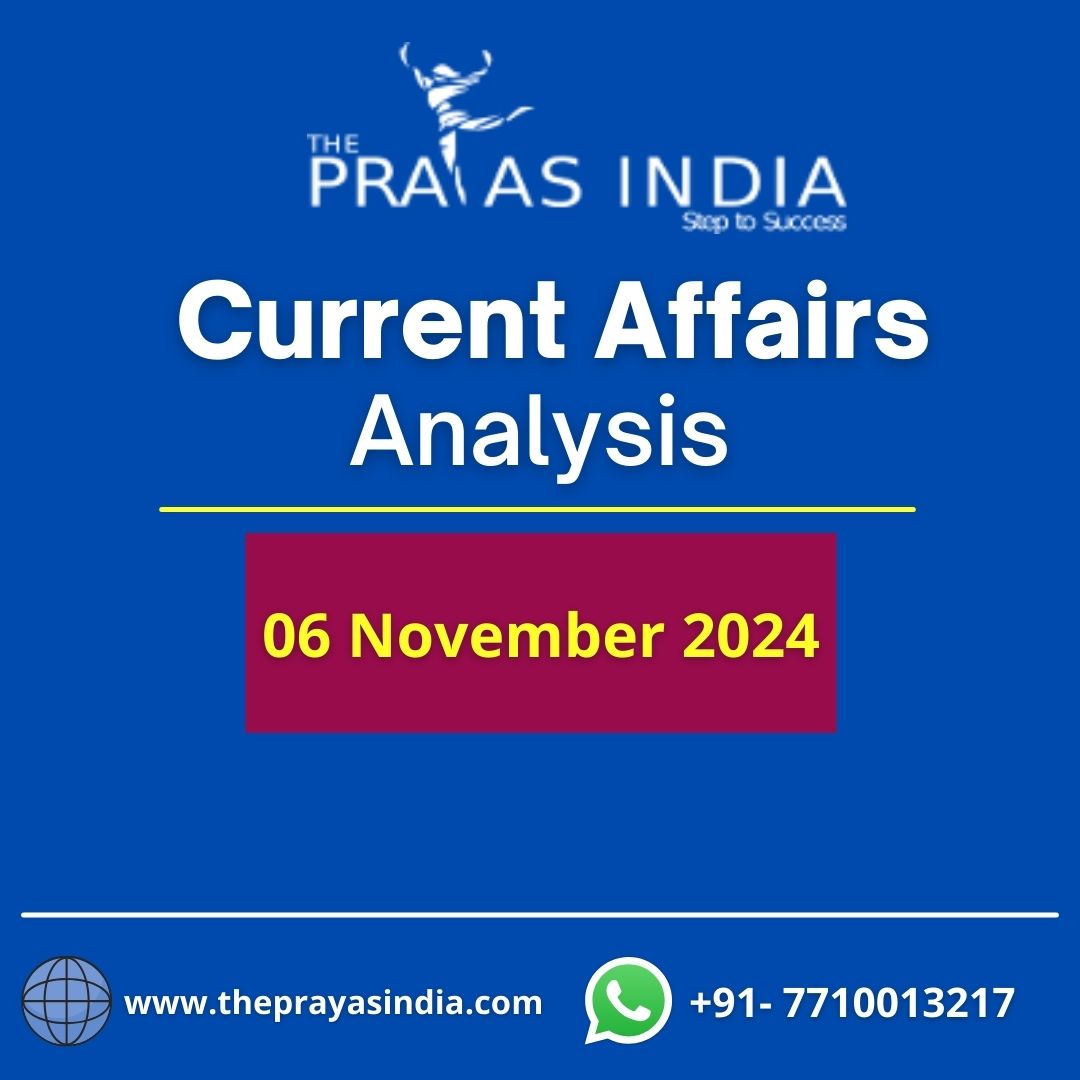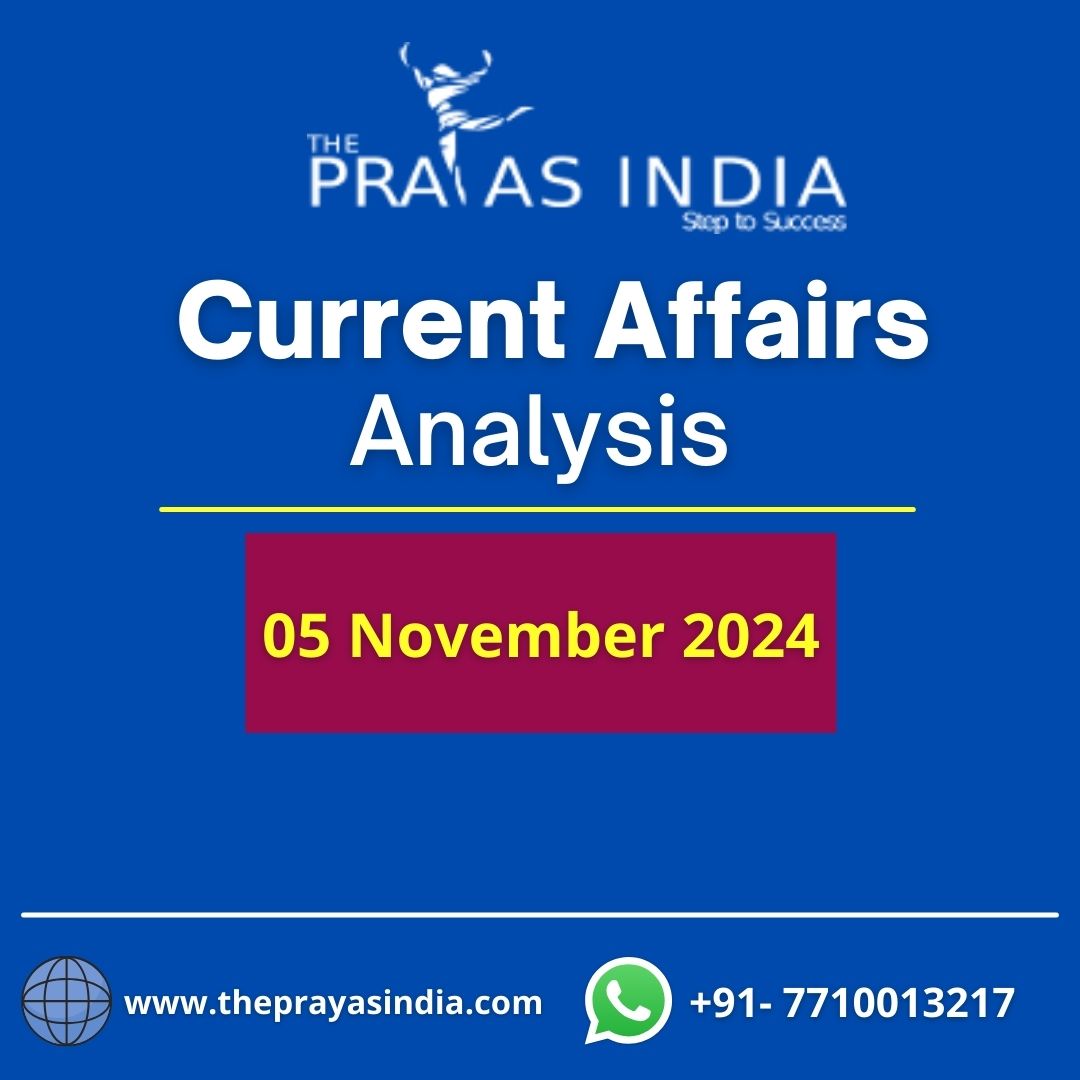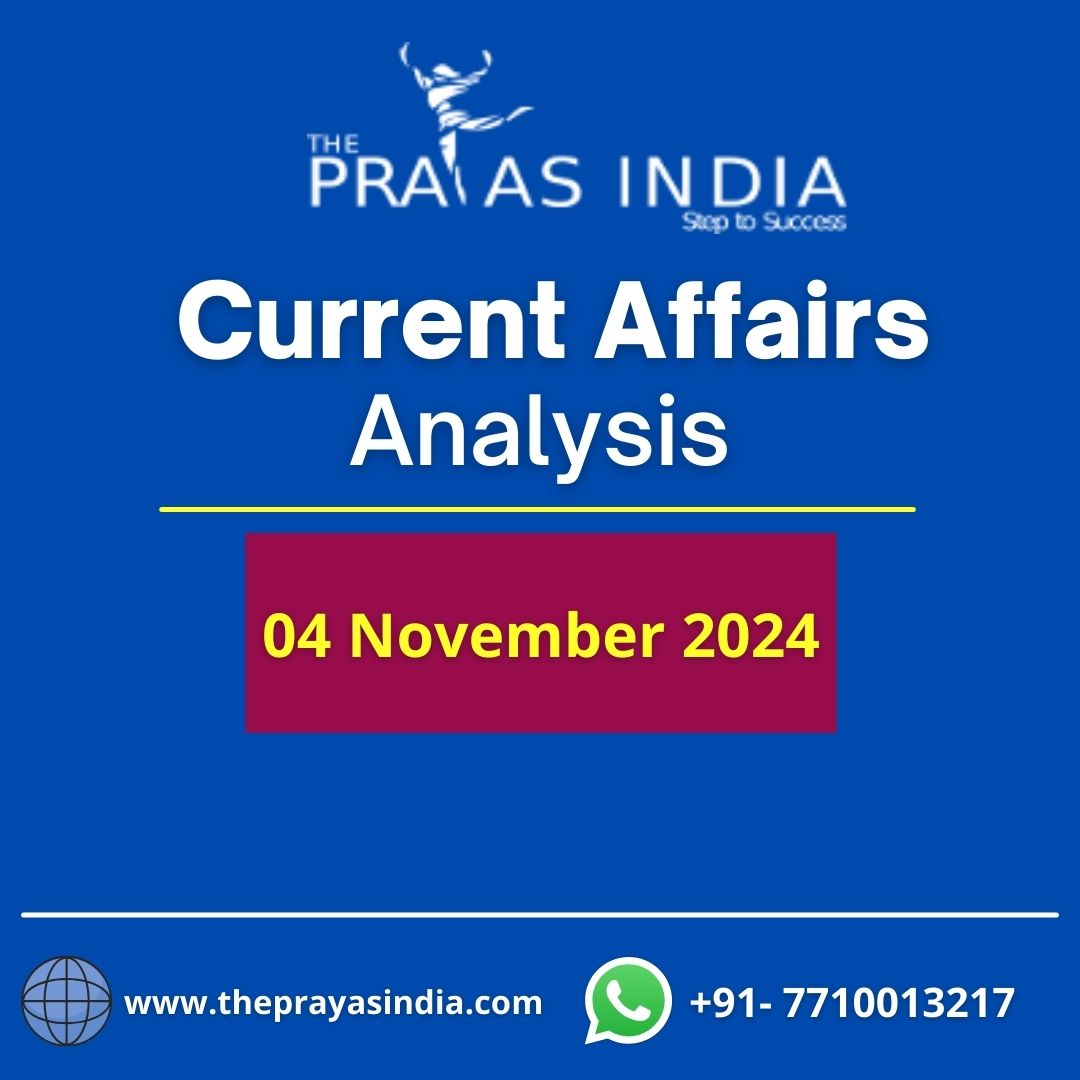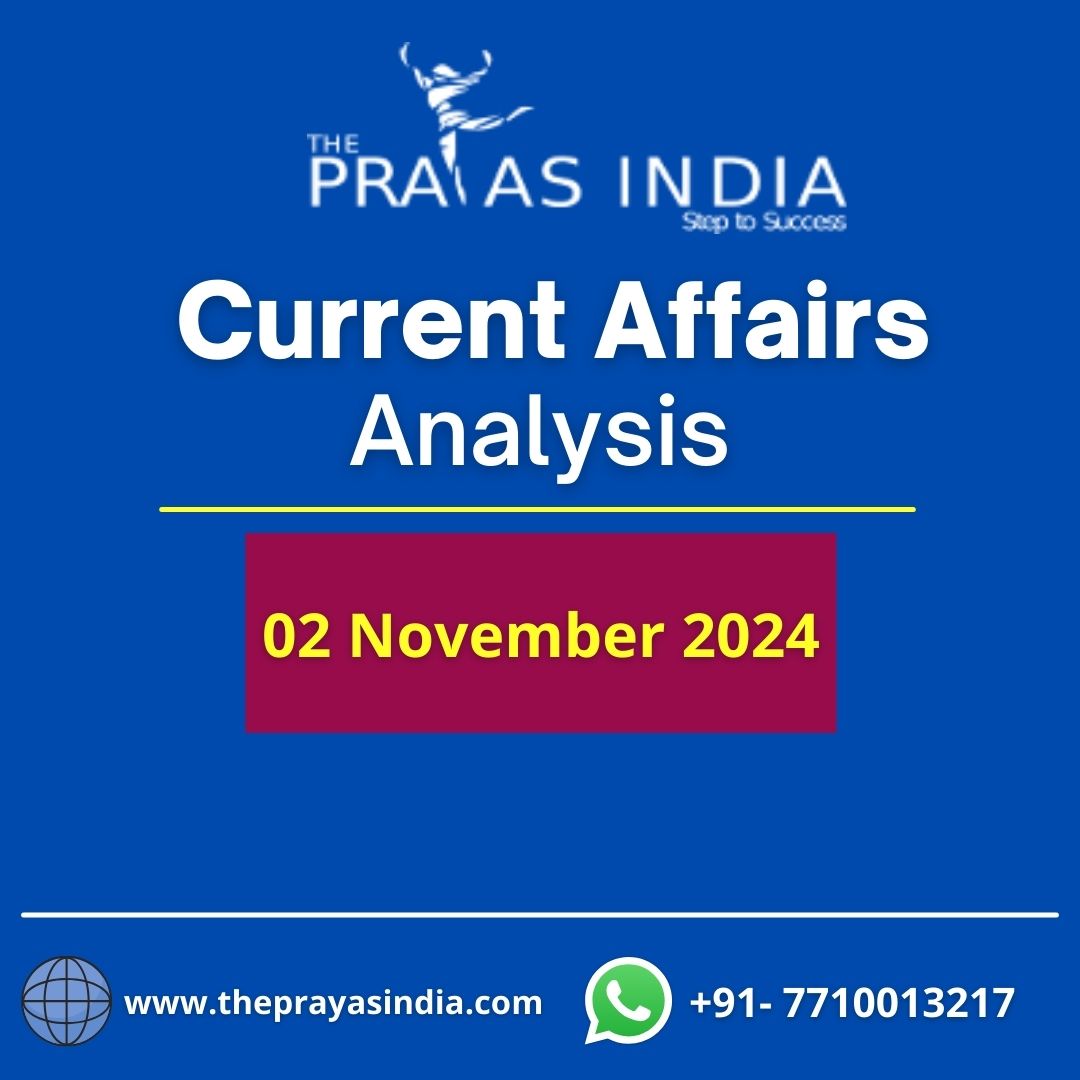DAILY CURRENT AFFAIRS ANALYSIS
| S. No. | Topic Name | Prelims/Mains |
| 1. | Data Protection Bill | Prelims & Mains |
| 2. | IMD | Prelims & Mains |
| 3. | CDS | Prelims & Mains |
| 4. | Mid Day Meal Scheme | Prelims & Mains |
1 – Data Protection Bill: GS II – Government Policies and Interventions:
Context:
- The Union government informed the Supreme Court on April 11, 2023, that the Digital Personal Data Protection Bill 2022, a new law governing personal internet privacy, is “ready.”
- Speaking for the Union before a Constitution Bench led by Justice KM Joseph, Attorney-General R. Venkataramani said that “the revised Bill will be introduced in the Monsoon Session of the Parliament in July.”
What are the 2022 Bill’s Seven Principles?
- Organizations must first and foremost utilize personal data in a way that is legal, equitable to the parties involved, and open to the public.
- Second, only the purposes for which personal information was obtained may be used.
- The third concept is the reduction of data.
- The fourth principle emphasizes precision in data collection.
- According to the fifth principle, personal data cannot be “stored permanently by default” and should only be retained for a specific period of time.
- The sixth principle states that “no unauthorised collection or processing of personal data” is acceptable.
- The Eighth Principle states that “the person who determines the aim and means of the processing of personal data should be liable for such processing.”
What Constitutes the Digital Personal Data Protection Bill’s Core Components?
Data Fiduciary and Data Principal:
- The Data Principal is the individual whose data is being collected.
- Children under the age of 18 will have their parents or guardians as their “Data Principals.”
- The Data Fiduciary determines the “purpose and means of the processing of an individual’s personal data” (individual, company, firm, state, etc.).
- “Any data by which an individual can be identified” is referred to as personal data.
- “The whole range of activities that may be applied to personal data” are referred to as “processing” in this sentence.
Important Fiduciary Information:
- Important Information Fiduciaries are people who deal with a lot of personal data. The federal government will decide who fits into this category based on a number of factors.
- These businesses will have to hire a “Data protection officer” and an unbiased data auditor.
People’s Rights:
Information Access:
- People should be able to “access basic information” in the languages mentioned in the eighth schedule of the Indian Constitution, according to the bill.
right of consent:
- Individuals must provide their consent before their data is processed, and the law states that “every subject should know what types of personal data a Data Fiduciary wants to collect and the purpose of such collection and further processing.”
- A Data Fiduciary must also provide people with the chance to withdraw their consent.
the power to erase:
- The right to request that the data fiduciary erase and rectify any data collected by data principals.
- Data Principals may designate a representative to carry out their wishes in the case of their decease or incapacity.
- Data Protection Board: The Bill also recommends setting up a Data Protection Board to ensure that the Bill is followed.
- In the event that the Data Fiduciary’s response is subpar, consumers may file a complaint with the Data Protection Board.
- Cross-border Data Transfer: The bill permits the storage and transmission of data across international borders to “certain recognised nations and territories,” as long as those nations have an environment that is suitable for data security and the Government is able to access Indian data from those locations.
About Data Fiduciary:
- According to the bill, companies that commit data breaches or fail to alert users when they do so risk severe fines.
- There would be fines ranging from Rs. 50 crore to Rs. 500 crore.
- For Data Principal: If a user registers for an online service using false paperwork or makes unfounded complaints, they may be fined up to Rs 10,000.
Exemptions:
- The government may exempt some businesses from complying with the bill’s requirements depending on the number of users and the amount of personal data the firm processes.
- The Personal Data Protection Bill, 2019 was amended to address complaints from the nation’s startups that it was too “compliance intensive.”
- National security-related exemptions have been maintained from the previous 2019 edition.
- The Centre has been given the authority to exempt its agencies from adhering to the Bill’s provisions in the interest of upholding India’s sovereignty and integrity, the security of the State, friendly relations with other countries, upholding public order, or preventing incitement to any cognisable offence.
Why is the law protecting digital personal data important?
- The revised Bill significantly relaxes its restrictive requirements on cross-border data transfers in contrast to the contentious necessity of local storage of data within India’s borders in the previous Bill.
- It has a fairly tolerant position toward the requirements for data localization and permits data flow to a few international places, which is anticipated to promote government-to-government trade partnerships.
- The Joint Parliamentary Committee had suggested adding a clause to the PDP Bill, 2019, called “Withdraw Consent,” which would have acknowledged the data principal’s right to postmortem privacy (JPC).
How has India’s data protection system been strengthened?
Union of India v. Judge K. S. Puttaswamy (Retd) 2017:
- In Justice K. S. Puttaswamy (Retd) v. Union of India, a nine-judge Supreme Court panel unanimously declared in August 2017 that Indians have a basic right to privacy under Article 21 of the Constitution, which is protected by law.
N. Srikrishna Committee 2017:
- A committee of experts on data protection was established by the government in August 2017 and was presided over by Judge B N Srikrishna. In July 2018, the committee’s report and a draft Data Protection Law were both delivered.
- A Data Protection Authority, the right to be forgotten, data localization, and restrictions on data processing and collection are just a few of the recommendations made in the Study to improve India’s privacy laws.
- Rules for Information Technology (Intermediary Guidelines and Digital Media Ethics Code) 2021: IT Guidelines (2021) mandate that social media platforms exercise greater caution when hosting content.
Source The Hindu
2 – IMD: GS II – Statutory and Non-Statutory Bodies:
Context:
- Given that the India Meteorological Department (IMD) anticipates a 4% shortfall in rainfall during the upcoming monsoon season, India’s four-year streak of generous summer monsoon rainfall is likely to come to an end this year.
- Although it is still considered “average,” the amount of rainfall was at the lower end of what the agency considers to be “normal” at 96% of the Long Period Average (LPA). Most recently, India experienced a 2.6% shortfall in the monsoon in 2017 despite the IMD’s 96% April estimate.
About:
- The India Meteorological Department, also known as IMD, was founded in 1875. It is the nation’s National Meteorological Service and the leading government body for all matters pertaining to meteorology and related topics.
- In 1875, the India Meteorological Department (IMD) was founded. It is a department of the Indian government’s Ministry of Earth Sciences.
- It is the main organization in charge of seismology, meteorological observations, and weather forecasting.
- The World Meteorological Organization has six regional specialized meteorological centers, and IMD is one of them.
- The cyclones in the northern Indian Ocean are named by the Regional Specialized Meteorological Centre (RSMC) of Tropical Cyclones in New Delhi.
Objective:
- to gather meteorological data and offer up-to-date and forecasted forecasts so that weather-sensitive sectors including agriculture, irrigation, shipping, aviation, and offshore oil explorations can operate as efficiently as possible.
- to issue warnings about dangerous weather conditions that can destroy both life and property, such as tropical cyclones, nor’easters, dust storms, heavy rain, snow, cold, and heat waves.
- IMD is necessary to offer the meteorological data needed for managing water resources, industry, oil exploration, and other nation-building endeavors.
- to carry out and advance research in meteorology and related fields.
Source The Hindu
3 – CDS: GS III – Internal Security:
Context:
- According to Chief of Defence Staff (CDS) General Anil Chauhan, who noted that space is being used to improve combat capabilities in the land, sea, and cyber domains, the very nature of warfare is on the verge of a significant transformation, and what is being seen is the militarization of space and steady progress toward weaponization.
- He stated this at the Indian DefSpace Symposium, which was put on by the Indian Space Association (ISpA) in collaboration with the Defence Research and Development Organization. “The aim for all of us should be towards developing dual-use platforms with special focus towards incorporating cutting-edge technology and we must expand our NAVIC constellation, provide agile space-based Intelligence, Surveillance and Reconnaissance (ISR), and ensure secure satellite-assisted communications,” he said (DRDO).
What function does the Chief of Defense Staff perform?
- The Chiefs of Staff Committee, which has three service chiefs as members, is presided over permanently by CDS.
- His primary responsibility will be to maintain minimal inter-service tensions and promote greater operational synergy between the Indian military’s three service branches.
- He was also the director of the Ministry of Defence’s newly established Department of Military Affairs (DMA).
- The service chiefs will be required to limit their advice to matters involving their own services, and the CDS will serve as the single-point military adviser to the defence minister on matters involving all three services.
- As the permanent chairman-chiefs of staff committee and the head of DMA, CDS is given the power to prioritize decisions regarding inter-service procurement.
- Moreover, the three chiefs might receive instructions from the CDS.
- He lacks command authority over any of the forces, though.
- Within the DoD (Department of Defence), CDS holds the rank of Secretary and is the first among equals. His authority is restricted to the revenue budget exclusively.
- Additionally, he will serve in an advising capacity for the Nuclear Command Authority (NCA).
What does CDS mean, exactly?
- Synergy between the armed forces and the government: CDS’s job goes beyond promoting tri-service collaboration to also focus on improving communication between the Ministry of Defense’s administrative staff and the armed services.
- Three Service Headquarters (SHQ) have been classified as “Attached Offices” of the Department of Defense since 1947. (DoD).
- Owing of this, files are primarily used as a means for communication between SHQ and DoD.
- The decision-making process will go more quickly with the appointment of CDS as the Defense Minister’s PMA.
- Jointness in operations: Because the chairmanship of the Chiefs of Staff Committee-COSC (the forerunner of CDS) is rotated among the three chiefs on a part-time basis, it has proved ineffective.
- In the past, the chairman COSC lacked the power, capability, and motivation to address important tri-service concerns.
- The CDS will be able to give tri-service organization management his complete attention now that he is the “permanent chairman of COSC.”
- Operationalization of Theatre Command: The establishment of DMA will make joint/theater command more operational.
- The Andaman & Nicobar Command established an effective model for joint operations, but due to a lack of political direction and the COSC’s lack of interest, this joint command has become inactive.
- Staff with the knowledge and experience to deploy land, sea, and aviation forces would be needed by theater commands. Each of these policies would be most effectively executed by the CDS due to their disruptive effects.
- The Strategic Forces Command will be managed by CDS, a crucial link in the nuclear command chain.
- This action will significantly improve India’s nuclear deterrent’s credibility.
- Also, the CDS will start an immediate review of India’s nuclear doctrine.
- A significant role of CDS will be “prioritizing” the capital acquisition bids of separate services in the upcoming era of shrinking defense budgets.
- The CDS will need to make sure that the “defence rupee” is well spent, on warfare capabilities that are thought to be essential for national military might, rather than on appeasing service needs.
Why Reconsider the CDS Role?
- It has been observed that simply appointing a CDS wasn’t sufficient; there are numerous concerns relating to roles and responsibilities, as well as questions of equivalence and other things.
- With the multiple hats the CDS wears and the overlap in duties between the DMA and DoD, there is also a duality in the roles and responsibilities.
- There is also a reevaluation of the aggressive timetables set for the development of Theatre Commands, as well as the anticipated number of commands and their structure.
What is the status of the Theatre commands?
- The first CDS was given the ambitious task of reorganizing the Indian armed forces into integrated theatre commands, which would be the most significant military restructuring in the previous 75 years and profoundly alter how the three services cooperate.
- The Vice Chiefs of the three Services conducted extensive research on the theatre commands, which included the land-based Western and Eastern theatre commands, the maritime theatre command, and an integrated air defense command. It was decided that the Army’s Northern Command would be excluded initially and then included later.
- However, there are still several areas where there are disagreements, including the Air Force’s worries about the air defense command and the title and rotation of the theatre commands, among other things.
- The procedure has stopped because to the lack of a CDS and ongoing disagreements despite the fact that further studies were authorized and are now being conducted.
Steps to Take:
- A CDS with operational authority is required, and following the necessary legal amendments, he will receive reports from theater commanders while the Service Chiefs manage the raise, train, and sustain functions of the individual Services.
- Since the creation of CDS will not be a panacea, India must make extensive reforms to modernize its armed forces in order to address the security concerns of the twenty-first century.
Source The Hindu
4 – Mid Day Meal Scheme: GS II – Government Policies and Interventions:
Context:
- The budget for serving midday meals to children at 14,409 elementary schools under the Pradhan Mantri Poshan Shakti Nirman has increased by more than 58% in Haryana (PM-POSHAN).
- In contrast to the previous year’s budget of Rs 384 crore, Rs 661 crore has been set aside for the purpose. Thursday’s meeting of the state-level steering committee for the midday meal program included a directive from chief secretary Sanjeev Kaushal to officials to do a research into enhancing the nutritional value of the meals in various blocks.
What does the midday meal plan entail?
- It is the world’s largest school feeding program of its kind, serving pupils in government schools in Classes 1 through 8.
- This program’s main goal is to increase school enrollment.
- Ministry of Education is the nodal ministry.
- Background: The program was first made available to underprivileged kids in Madras Municipal Corporation in 1925.
- For kids in Grades 1 through 5, the Union government introduced a centrally sponsored program on a trial basis in 1995.
- MDMS had been raised up to Class 8 by October 2007.
- Current Situation: In 2021, the program will be renamed PM Poshan Shakti Nirman or PM Poshan.
- Scale of Coverage: From Grades 1 to 8, 11.80 crore children are included in the program (age group 6 to 14).
- With the National Food Security Act (NFSA), 2013, it is not simply a program but a right granted to all students enrolled in primary and upper primary classrooms.
- The Supreme Court’s decision in People’s Union of Civil Liberties v. Union of India and Others further supported this (2001).
- Federal Setup: According to the regulations, the allocation of Rs. 4.97 per child per day (primary classes) and Rs. 7.45 per child per day (upper primary classes) is shared in a ratio of 60:40 with states and UTs with a legislature, and 90:10 with the Northeastern states, Jammu and Kashmir, Himachal Pradesh, and Uttarakhand. The Centre is responsible for paying all expenses in UTs without a legislature.
What are the Problems and Difficulties around this?
- Corrupt Practices: There have been cases where ordinary chapatis were provided with salt, milk was diluted with water, people became sick from eating, etc.
- Children are often forced to sit apart in classrooms based on their caste position because food is a key component of the caste system.
- Malnutrition threat: According to the National Family Health Survey-5, levels of child malnutrition have gotten worse in a number of states across the nation.
- Around 50% of severely wasted children under the age of five and 30% of stunted children worldwide reside in India.
- Global Nutrition Report-2021: India has not achieved any progress in reducing anemia and childhood wasting, according to the recently published Global Nutrition Report (GNR, 2021).
- In the age range of 15 to 49 years, more than half of Indian women are anemic.
- Global Hunger Index (GHI) 2021: India dropped from its 2020 rank of 94th to 101st place in the Global Hunger Index (GHI) 2021 among 116 countries.
Steps to Take:
- Early Detection & Care: Years before these girls and young women become mothers, interventions to increase maternal height and education must be put into place.
- A holistic view of health: While improving early children’s nutrition has been a common strategy in the fight against stunting, nutritionists have long emphasized that improving mother health and wellbeing is the key to lowering stunting in offspring.
- Expanding and improving school meals is necessary for intergenerational benefits, according to the MDMS menu enhancement project. School-based treatments can be quite beneficial because girls in India finish school, get married, and have children all within a short period of time.
Source The Hindu




